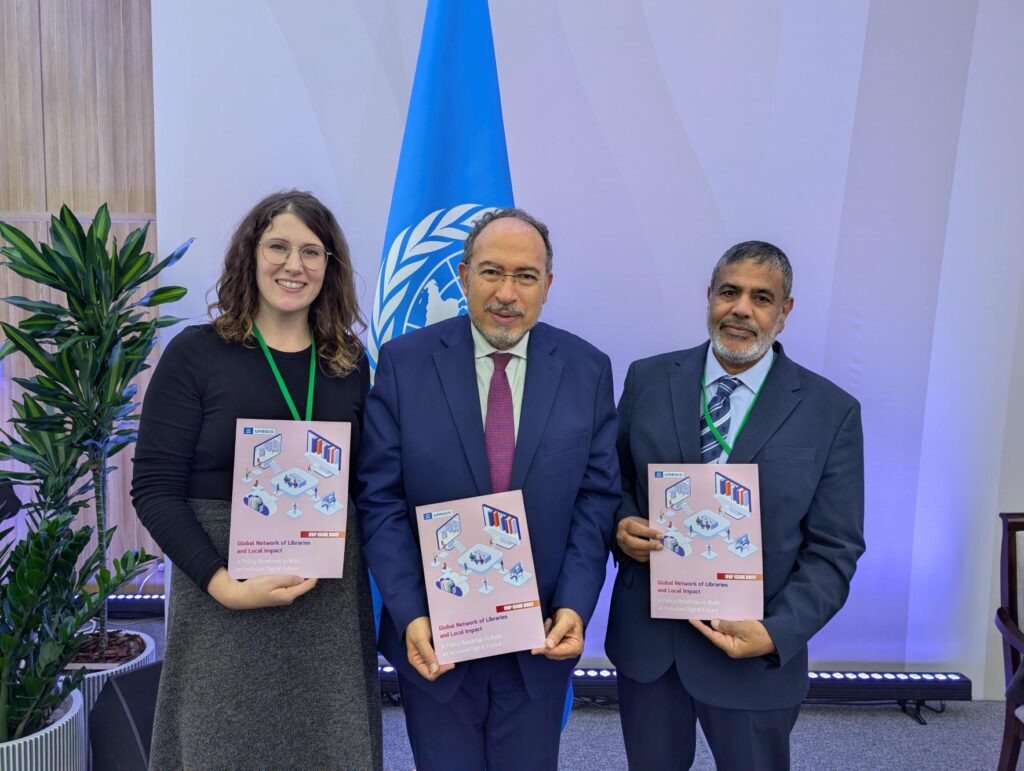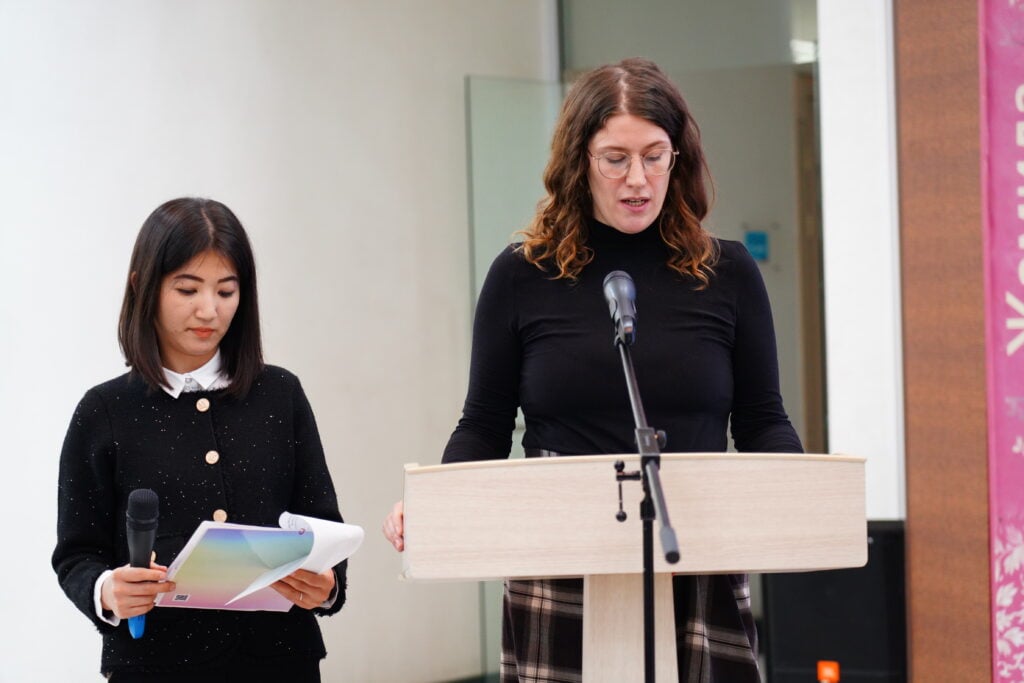Celebrating Successes and Looking to the Future in Uzbekistan: IFLA at the UNESCO General Conference
18 November 2025
Hosted by the government of Uzbekistan in Samarkand, the 43rd General Conference, the highest decision-making body of UNESCO, took place earlier this month.

Why was IFLA there?
For just about 80 years, IFLA has been in official partnership with UNESCO. As their mandate spans education, science, culture and information, this is a critical space for the library sector to connect with international policy and encourage national-level investment in libraries.
The General Conference is a space where IFLA can not only demonstrate our commitment to partnering with UNESCO, but also connect with representatives of UNESCO’s Member States. We can comment on their plans and ambitions, and highlight how the IFLA and the library field stand ready to partner to realise our many shared goals.
What’s new?
We were excited to help launch a new Issue Brief published by the UNESCO Information For All Programme (IFAP) – Global Network of Libraries and Local Impact: A Policy Roadmap to Build an Inclusive Digital Future.
This is a practical tool for Member States and library partners to foster inclusive and sustainable knowledge societies in the digital age through working together. IFLA is so proud of this collaborative effort, and we encourage all our members to reach out to National and Regional UNESCO offices to start a conversation on implanting its recommendations.
Find out more: https://www.unesco.org/en/articles/new-ifap-issue-brief-empowering-libraries-inclusive-digital-future
What is coming up in 2026-2027?
One of the main items for discussion and decision at the 43rd General Conference was the draft budget and programme for the period 2026-2027. While there are relevant connections to libraries across UNESCO’s Sectors, we especially followed the Communications and Information (CI) and Culture Sectors’ discussions.
Communications and Information
The CI Sector will contribute to outputs in the coming biennium that support Member States by:
- Reducing risk through capacity-building, awareness, prevention, and preparedness for inclusive climate adaptation.
- Supporting memory institutions to identify, preserve, and promote documentary heritage.
- Promoting freedom of expression and access to information, including during crises.
- Improving journalist safety, especially for women and in conflict or emergency contexts.
- Strengthening media independence, diversity, and sustainability.
- Ensuring information integrity through collaborative approaches.
- Advancing Media and Information Literacy (MIL) policies and digital initiatives.
- Developing ethical AI governance frameworks and policies.
- Expanding access to reliable information via digital public goods and open solutions.
Culture
The Culture Sector will contribute to outputs in the coming biennium that support Member States by:
- Integrating culture into public policies for inclusive and sustainable development at all levels, including the post-2030 agenda.
- Strengthening capacities to protect and promote all types of heritage
- Promoting cultural diversity
- Preparing for and responding to emergencies affecting culture, including armed conflict.
- Combating illicit trafficking of cultural property and promoting its return and restitution through international cooperation.
- Supporting implementation and monitoring of the UNESCO Framework for Culture and Arts Education.
Both Sectors will have a role in:
- Safeguarding Indigenous knowledge, cultures, and languages via inclusive policies and targeted actions.
- Enhancing knowledge and capacities for inclusive digital transformation, sustainable AI and data governance, equitable access to quality education, and diverse content.
Connecting with the Uzbek Library Field

While in Uzbekistan, IFLA was also delighted to visit our member, the National Library of Uzbekistan, and connect with librarians from across the country on the opening day of the national INFOLIB Week 2025.
IFLA joined Ms. Umida Teshaboyeva, Director of the National Library of Uzbekistan, in welcoming participants and celebrating the spirit of professional development, connection, and experience-sharing. We then contributed to the Betgerxonlik 2025 Conference, speaking about the critical role of libraries in enabling rights-driven sustainable development, including through upholding cultural rights and ethical approaches to AI.
We thank the National Library team, director Ms Teshaboyeva, and the International Relations Department for their warm hospitality.